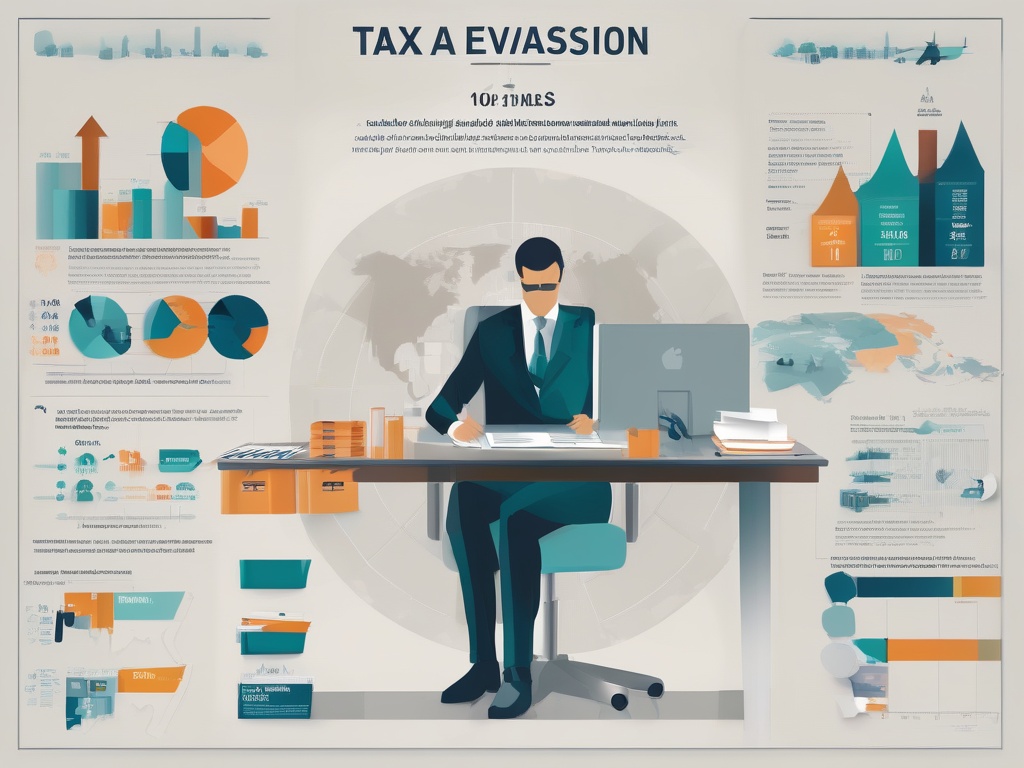
Unmasking the Legal Boundaries: Distinguishing Tax Evasion from Tax Avoidance
In the complex world of taxation, the line between legitimate tax planning and illegal tax evasion can often seem blurred to the untrained eye. As governments worldwide tighten regulations and crack down on illicit financial behaviors, understanding the crucial distinctions becomes more important than ever for individuals and corporations alike. This article delves into the depths of these differences, shedding light on what separates lawful tax avoidance from criminal tax evasion, and how to stay on the right side of the law.
At its core, tax evasion is a deliberate act to misrepresent or conceal income, profits, or information to reduce tax liability illegally. It involves activities such as underreporting income, inflating deductions, or hiding assets in offshore accounts — actions that are explicitly criminalized in most jurisdictions. Conversely, tax avoidance refers to the strategic planning of transactions within the bounds of the law to minimize tax liability. Engaging in tax avoidance involves utilizing existing legal provisions, such as tax deductions, credits, and incentives, to optimize tax outcomes. The key difference lies in intent and legality: while avoidance is lawful and encouraged as part of financial planning, evasion is a deceitful breach of legal obligations, punishable by penalties and criminal charges.
The Fine Line of Legality: Navigating the Complex Terrain of Tax Strategies
In the intricate world of taxation, the distinction between clever financial planning and illicit activity is often razor-thin. The challenge lies in discerning when a tax strategy crosses the line into illegality. While the law recognizes the importance of lawful tax optimization, it also emphasizes the importance of transparency and honesty. Taxpayers must be vigilant to ensure their strategies align strictly with legal frameworks, avoiding actions that could be interpreted as an attempt to conceal income or manipulate records. This fine line becomes especially significant when leveraging complex financial instruments or engaging in aggressive tax planning, where the intent behind transactions can sometimes blur the boundary between legitimate avoidance and unlawful evasion.
One of the most crucial aspects in differentiating lawful tax planning from illegal evasion is the element of intent. Authorities examine not only the apparent legality of a transaction but also the underlying motive. Tax avoidance is characterized by a genuine effort to interpret existing laws and utilize legal provisions in a manner consistent with legislative intent. Conversely, tax evasion often involves deliberate misrepresentation or concealment, with an intent to deceive tax authorities. This distinction is vital for taxpayers aiming to stay within legal boundaries, as the courts and tax agencies scrutinize not just the outcome but also the purpose behind complex financial maneuvers. Understanding this subtlety can be the difference between a legitimate tax strategy and a criminal offense.
To navigate this complex terrain successfully, taxpayers and advisors must adopt a meticulous approach rooted in transparency and adherence to legal standards. Engaging with certified tax professionals and legal experts can provide clarity and ensure compliance. Maintaining detailed documentation of all transactions, intentions, and consultations serves as a vital safeguard against accusations of evasion. Moreover, staying informed about evolving tax laws and regulatory guidelines is essential—what may be legal today could be deemed unlawful tomorrow. Ultimately, the goal is to develop robust, ethically sound tax strategies that optimize liabilities without risking legal repercussions. This proactive approach not only safeguards assets but also upholds integrity and fosters trust with tax authorities.
Consequences and Ethical Implications: The Battle Between Compliance and Deception
Engaging in tax evasion is not merely a breach of fiscal regulations; it is a gamble with severe consequences that extend far beyond financial penalties. When authorities uncover deliberate misreporting or concealment of income, taxpayers face substantial fines, criminal charges, and even imprisonment. The repercussions can tarnish personal and corporate reputations irrevocably, eroding trust among stakeholders, clients, and the public. Such violations are often met with rigorous investigations, and in the era of digital transparency, the risk of detection has increased exponentially. This underscores the importance of maintaining strict compliance and understanding that the costs of illegal evasion far outweigh any short-term benefits, making it a perilous game that can destroy careers and legacy alike.
On the other hand, while legal tax avoidance is generally viewed as a legitimate form of financial planning, there are ethical considerations that must not be overlooked. Aggressive strategies, even if technically lawful, can sometimes tread into morally ambiguous territory, especially when they exploit loopholes or exploit gaps in the law to minimize contributions unfairly. Such practices can provoke public outrage and damage public trust in the tax system, raising questions about corporate and individual integrity. It becomes a battle between the pursuit of lawful optimization and the societal obligation of fair contribution, emphasizing that ethical responsibility should guide even the most sophisticated tax strategies.
The core of this ongoing battle lies in the choice between transparency and deception. Taxpayers who lean towards avoidance often emphasize the importance of understanding and utilizing legal provisions—viewing it as a responsible way to manage resources efficiently. Conversely, those who engage in evasion prioritize personal gain at the expense of societal obligations, often resorting to deceit to conceal income or assets. This ethical gap has profound implications: it influences public perception, impacts policymaking, and shapes legal frameworks. When individuals or corporations manipulate legal structures with little regard for societal fairness, they contribute to a sense of injustice that can undermine the legitimacy of tax systems worldwide. Upholding ethical standards means recognizing that compliance is not merely about avoiding penalties but about fostering a culture of honesty and accountability that sustains the social contract.
